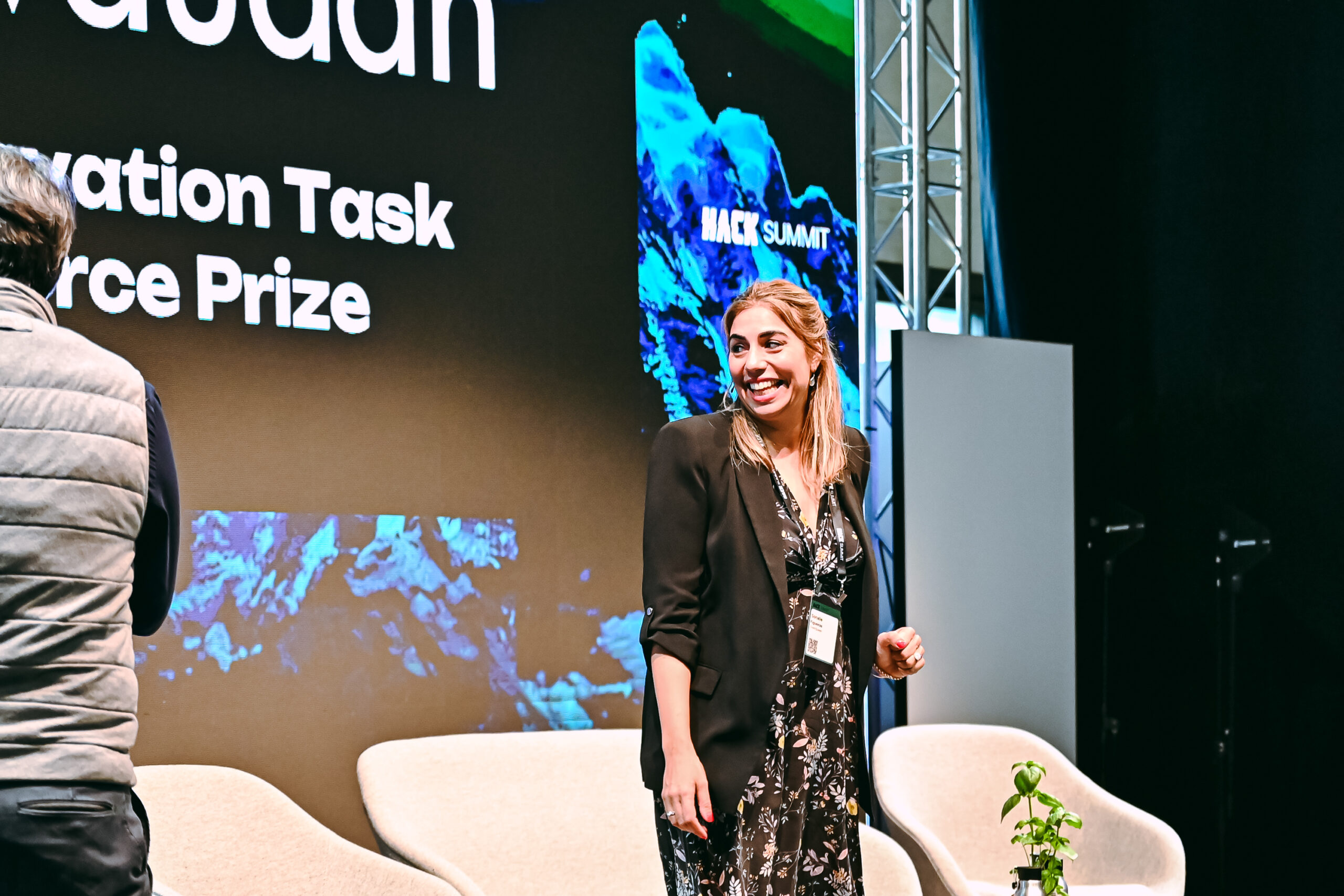8 Mins Read
Green Queen’s founder shares her take on HackSummit, the must-attend yearly climate and food tech event that just took place in Lausanne, Switzerland.
Should climate activists travel to conferences? It’s a tough question to answer. After all, most of us are drowning in flygskam and painfully aware that offsetting is somewhat of a greenwasher’s game. Along with reducing meat consumption, quitting air travel is the single most effective thing you can do as a consumer to decrease your personal contribution to the global greenhouse gas emissions budget.
While Hong Kong never had to live through the severe lockdowns that occurred in China, Europe, the US and many other parts of the world, we had such strict outbound and inbound travel restrictions that we were effectively grounded for close to three years. This meant that I could connect with my global green community virtually and at a fraction of the emissions cost.
As the world opened back up for business in 2022 and Covid restrictions eased up, I watched my fellow foodtech and climatetech community dart here, there, and everywhere for dozens of conferences, summits and trade shows and it was hard not to feel totally left out, even though many of the organizers were kind enough to invite me to join virtually as they explored hybrid programming.
I tend not to be one for FOMO, but last May, watching all the social media posts and photos pour in after the first HackSummit in Lausanne, Switzerland, I told my husband that there was no way I was going to miss it in 2023.
Luckily for me, Hack invited me back. Two weeks ago, I arrived in Lausanne after taking a train from Geneva airport to attend the event that Sifted dubbed one of “Europe’s top tech events”.
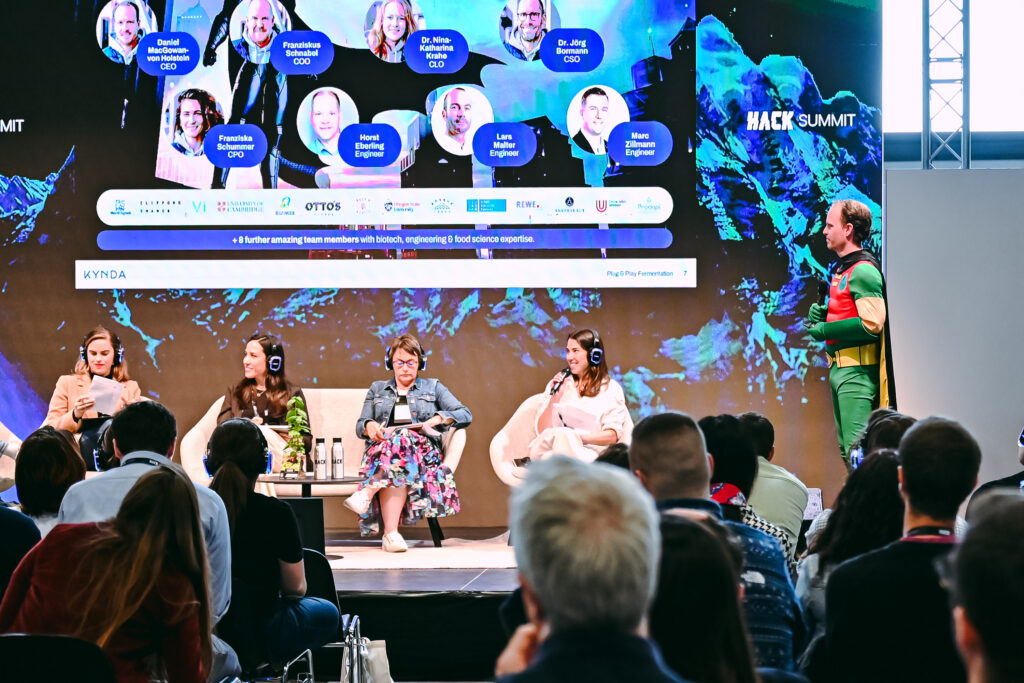
950 attendees, 280 investors, 118 speakers, 57 startup exhibitors, panels, 2 conference days and 1 speaker dinner later…HackSummit is a truly incredible event. It’s fun, which is already setting the bar pretty high (most conferences are not). It’s experientially engaging (lots of new products, tastings, demos and brand activations). It’s well organized (I thought the 1-to-1 meeting app they used was really good, not perfect, but much better than any other app I’ve used at other events. Apparently over 4,670 meetings were booked on it during the two days- that’s got to be some kind of record!).
Most importantly, it’s high quality. The caliber of the attendees was the best I’ve experienced. I must have had over 200 conversations over the two days and everyone was polite, respectful, interesting, interested, insightful and engaged.
I’ve been to over 300 conferences (yes, I counted) over the past decade or so and I can tell you that this is incredibly rare. When you are from the media, people are always trying to sell you something. They brag, they boast, they bluster…While I met dozens of proud and motivated founders in Lausanne, HackSummit had none of that. Everyone was genuine and collaborative.
Sidenote: Even the corporate sponsors were nice and fairly authentic. Look, I get it- you can’t run events without sponsors, but the Hack team blended in sponsor programming seamlessly. It never felt forced, or salesy.
Most of the time, at the end of a conference, I’m socially exhausted. At Hack, I left revitalized, and with so many new friends!
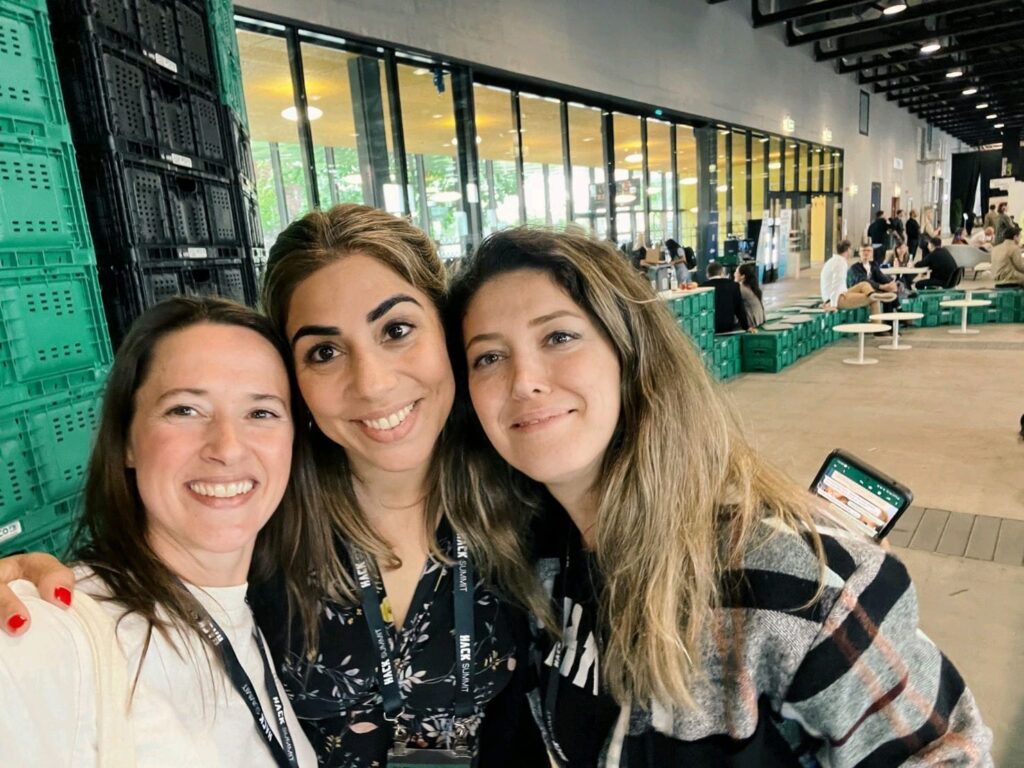
Another major plus: an awareness of the climate crisis amongst the event attendees was table stakes. Nobody was arguing over whether it’s real or whether people care about the environment. There appeared to be an implicit understanding that we are living through a major global emergency and we need to be working together on solutions. This is far from the case at US and Asian events. It’s a welcome change.
There’s something extremely special about the Hack community. I have known Arman since the very early days of his journey, which began with a newsletter and city meetups about foodtech a few years ago.
We very quickly realized we were simpatico and, when the pandemic was in full swing and the world had shut down, we launched a weekly Clubhouse (remember that!?) show together that brought together a global community of investors, journalists, founders and ecosystem players to discuss everything alt protein. Some days we had hundreds of people tuning in and sharing their point of view and dozens of friendships were formed because of the show. We ran it for six months, after which the world opened up and well, people stopped using Clubhouse…so that was that.
We stayed in touch and I continued to love what Arman and his team were doing and I tried to champion however I could as he expanded from food to climate, grew to a team of nine and went from being a networking and media community to an angel investment platform.
He is surrounded by a bevy of incredibly smart and talented women, many of whom I now consider friends, including his co-founder and conference organizer extraordinaire Emilie Dellecker, the HackCapital lead investor Erika Hombert, and co-founder and head of Product Camille Bossel, among many others.
Today they host regular foodtech meetups in 40+ cities, have led investments in more than 30 global startups, manage an investor platform of over 250 angels and VCs, and publish excellent industry content in the form of startup reports and newsletters. But I think I’ve finally figured out what the Hack secret is: they pay it forward. There is no other community I know that’s as generous with introductions and support and help. And that goes a long way toward explaining why they attract the attendees that they do!
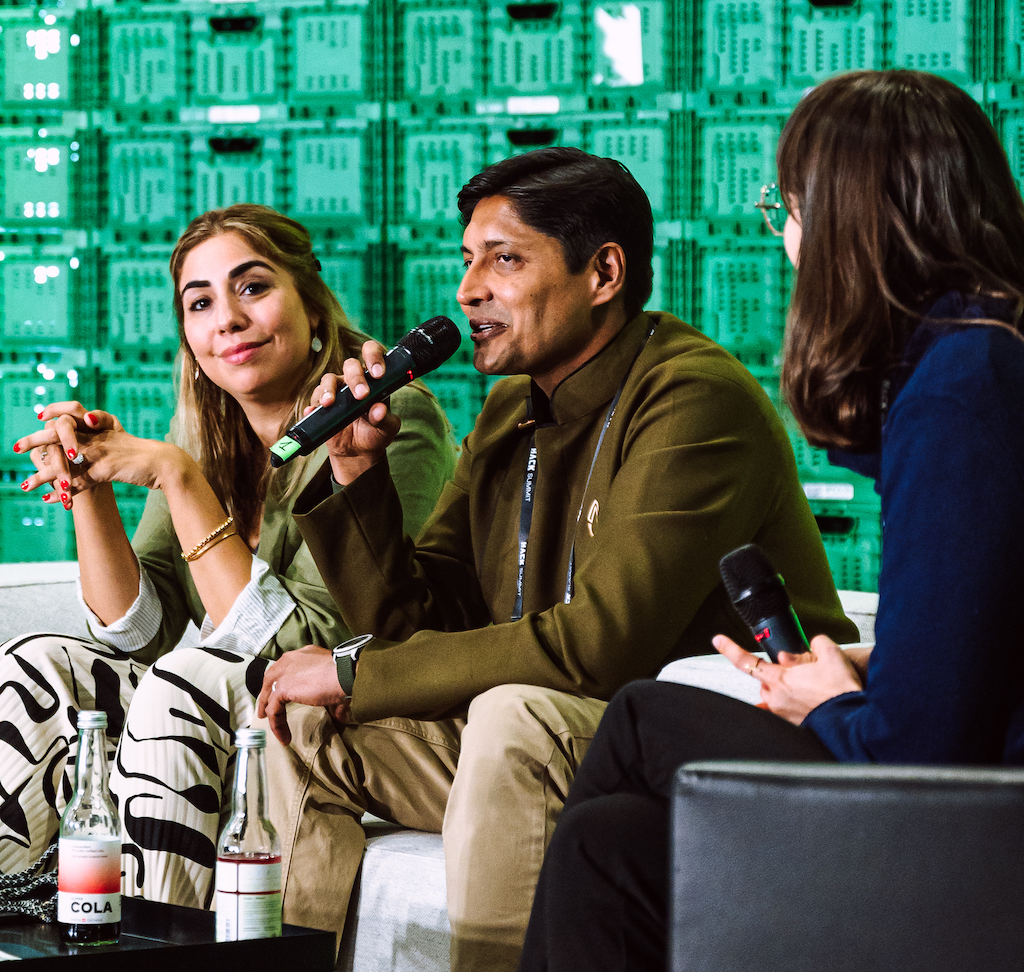
My three days in Lausanne were packed with highlights. I met people IRL that I’d known for years behind a screen, I spoke on a great panel about the future of sustainable packaging, I was part of a team that helped crown Givaudan’s Innovation Task Force Prize, I tasted some of the most exciting products in the alternative food space, I sat with founders who told me their impact stories, had heated debates with fellow journalists and investors, and I listened to insightful and inspirational panels about how we can work together to solve the biggest climate issues of our time.
All throughout there were extra magical moments.
Like when I looked into a founder’s eyes as they excitedly described their never-been-done-before product and passionately shared the wins of their young team and then met the eyes of their investor standing nearby with a smile that can only be described as ‘proud parent on the first day of school’.
Like when I tasted a new food product that was mind-blowingly good and felt I was going to explode with excitement because Yes! There is hope that we can do this thing! (This ‘thing’ being to fight the climate crisis). That’s magic right there.
Because there are so many days when it’s hard to see the (regenerative) forest from the trees and it’s hard to believe that real change is happening and it’s hard to keep going.
The HackSummit gave me some much-needed hope that we CAN do this. I left feeling energized and with a renewed sense of purpose.
So, back to my opening question: should climate activists travel to conferences? The short answer is: it depends. The longer answer is: if the conference in question is HackSummit and you are in the food and climate world, you should absolutely attend.
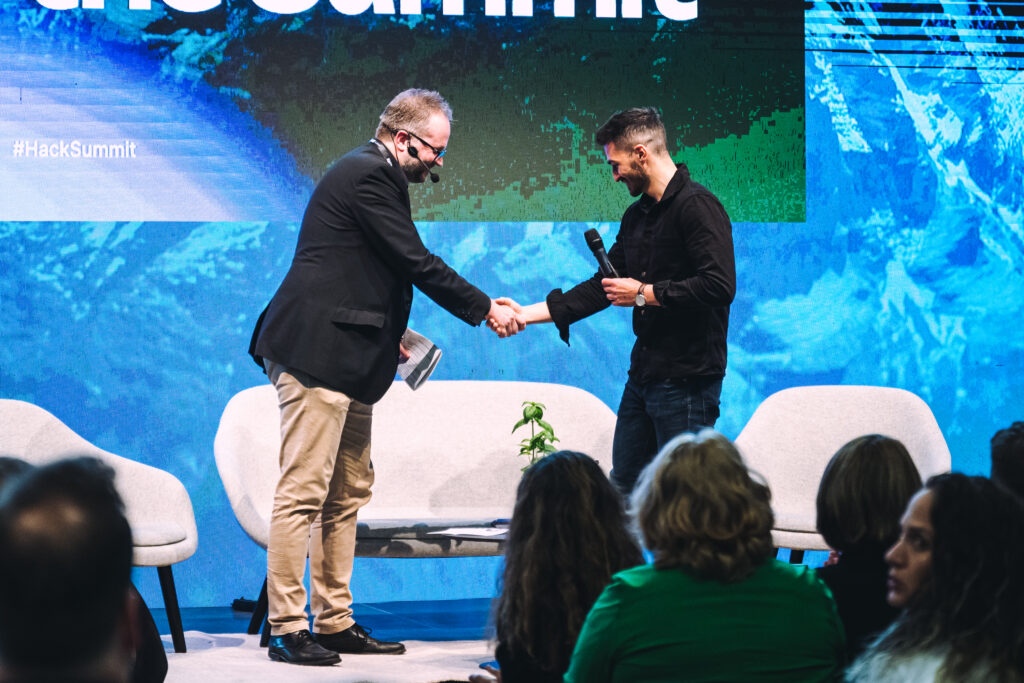
Postscript: How To Throw A Climate Conference Like You Give A Planetary Damn
As a rule, climate conferences should be 1) free of meat, dairy, seafood and eggs,2) should not create waste, and 3) should have no plastic water bottles. Emilie and her team executed this perfectly.
The only swag on site was some seriously awesome Hack-branded apples and a cloth bag that contained a baseball cap, a t-shirt and a reusable water bottle that you could fill up at water dispensers at the venue (and take home of course!) – no pesky flyers or dreaded pens anywhere.
All sets, stands, booths, and area dividers were reusable- the conference cleverly made use of stackable green creates throughout (a friend told me this was inspired by TechCrunch events!). Asian shows could really learn a thing or 10 here – regional conferences feature single-use materials everywhere. Sigh.
Noise pollution was at a minimum too – the main stage gave listeners headphones via which to listen to the panel speakers. Not only did this mean that those on stage had the full attention of the audience, but it also meant the programming didn’t compete with the networking at the heart of the show- have I mentioned how thoughtful the Hack team is yet? Again, Asian shows really need to step up here – it often feels like there are zero thoughts given to ensuring a pleasant audio experience at shows in Hong Kong!
While attendees were absolutely spoilt for choice (seriously, I am very much a food person and this was by far the best and widest variety and highest quality of food I’ve ever experienced at a work conference – see full details) in terms of coffee, snacks, drinks, grab-and-go food fridges and food trucks serving up freshly-made lunch, everything was plant-based, all meal food was served in reusable containers with bins that collected the lunchboxes and food trays and all drinks came in glass, cans or 100% certified compostable cups (compost bins were provided, natch).
Folks, I should not have to call this out as a special feature, but given that global climate events like COP27 still serve meat-heavy menus and feature bottled water, here we are.
Finally, unlike many other ‘green’ events I attend, where the organizers can’t stop bragging about the very basic eco features they implement, the Hack team did not even mention any of it. They just quietly did the right thing. As it should be!

